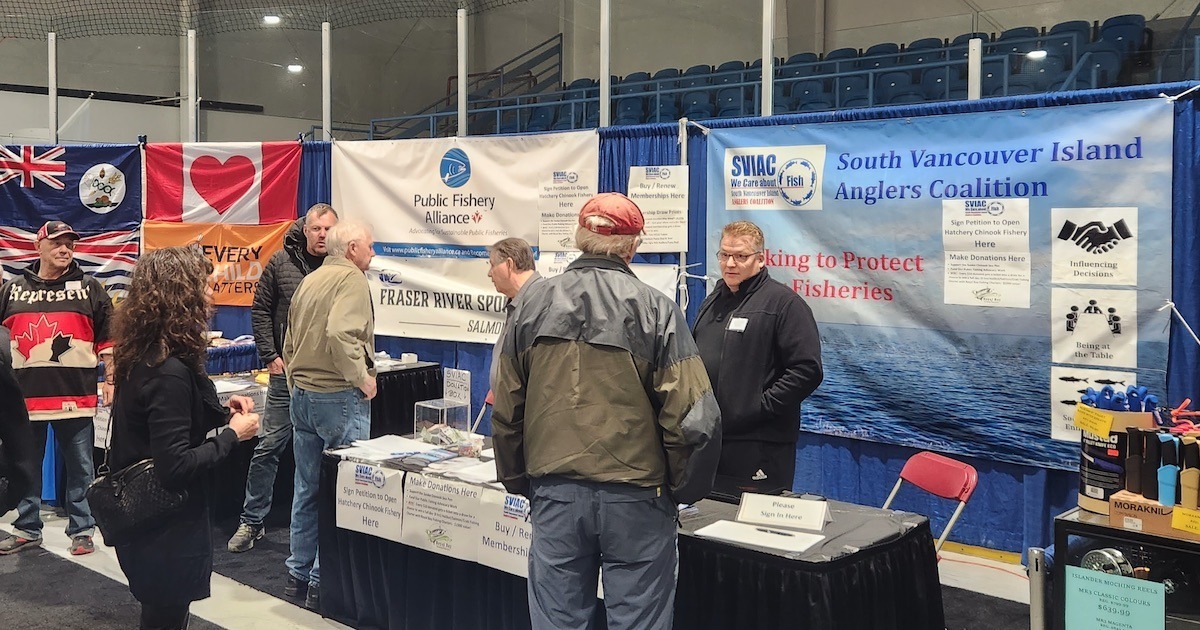
Background
The Public Fishery Alliance (PFA) formed as a consequence of Fisheries Minister Johnathan Wilkinson’s 2019 decision to impose Chinook-non-retention (CNR) over much of BC’s south coast.
These regulations crippled Chinook salmon fishing from Port Hardy south through Georgia and Juan de Fuca Straits for up to four months of the peak salmon fishing season.
The PFA recognizes that some important Fraser River Chinook are stocks of concern and supports their recovery. However, we also recognize that fishery managers have lengthy time-lines for Chinook run-timing and stock composition that support managing fisheries discretely. These fisheries can provide modest angling opportunities when stocks of concern are either absent, or present in extremely low numbers.
The Federal Government has implemented no-fishing regulations and vessel-access restrictions across large swathes of Juan de Fuca and Georgia Strait, some in excess of 100 square kilometers, to protect Southern Resident Killer Whales (SRKW’s) beginning in spring and lasting until fall. They include these important angling areas: The Fraser River mouth, lower Gulf Islands, Victoria/Sooke and Port Renfrew. In combination CNR and SRKW restrictions are unnecessarily dismantling the social and economic fabric of your south coast public salmon fishery.
Key Issues Confronting the Public Salmon Fishery
- Ottawa has stonewalled data supported Mark Selective Fishery (MSF) implementation since the most recent 2023 proposals, vetted by DFO, were intended for implementation on April 1st. These have ‘no to minimal impact on stocks of concern’. As of April 24th there has been no decision.
- Ottawa’s fisheries bureaucracy has slow-walked the implementation of hatchery Chinook and coho Mass Marking (MM). Adipose fin-clipping simplifies the identification of hatchery and wild salmon. The PFA supports mass marking, but is concerned the future of MSF remains uncertain without a committed mass marking policy. Public fishery advisors have been advocating for MSF for decades to conserve wild salmon and provide angling opportunities. Unfortunately, Canadians have been paying for salmon production that’s unused because hatchery salmon without fin-clips must be released. The PFA urges DFO to immediately start fin-clipping all hatchery Chinook and coho production, with the exception of hatchery salmon designated for stock recovery or science purposes.
- The PFA believes SRKW regulations are complex, confusing and knee-jerk. We oppose the Government’s preoccupation with imposing large complicated area-based no-fishing and no-boat-access regulations to protect SRKW’s. The PFA sees these measures as knee-jerk reactions based on outdated information that is inconsistent with current SRKW feeding trends. SRKW foraging habits react to a changing picture of Chinook abundance and location. Massive static closures are inconsistent with US recovery strategies which only come into effect when whales are present. US measures are simple to understand, effective and adaptive to SRKW’s feeding and transiting patterns. The PFA believes that Canada and the US should adopt a coordinated approach to SRKW recovery.
- DFO’s Integrated Fisheries Management process timing fails public fishery planning needs. The public fishery cannot turn on instantaneously. It requires advance planning to hire staff, attend trade shows, advertise for lodge and charter customers in an international competitive market, and stock fishing products for retail sales. This massive and unfounded uncertainty created by senior DFO and the Fisheries Minister creates chaos for the public fishery. The PFA believes fishing plans need certainty no later than January 1st each year.
- DFO cannot be excused for failing to understand the public fishery’s basic requirements. For decades public fishery advisors have explained the basics of ‘expectation and opportunity’ to Ministers of Fisheries and bureaucrats. It is our conclusion that seniors DFO staff in the Pacific Region and Ottawa have been overly influenced by angling opponents, and are indifferent to the multi-generational social, health and economic benefits that are derived from salmon angling.
- The PFA supports public access for in-river salmon fisheries. Public fisheries, like those on the Fraser River, have always been the first to face cutbacks. We believe these angling interests have shown patience and dedication to salmon recovery, and deserve to share in the benefits. Their annual catches have been minimal compared to the economic and social benefits that are vital for adjacent communities. Therefore, regulations need to change to allow selective recreational salmon fishing methods.
- The PFA is concerned that ‘public fishery unity’ has eroded due to DFO management policies. Events are rapidly overtaking the public’s opportunity to fish. It’s understandable that anglers look to local fishery concerns first. It is also clear that successive Ministers of Fisheries have ignored valid public fishery concerns despite the advice given by SFAB advisors. However, this is not the time to shutter the windows, hoping the problems will go away on their own. They won’t. Instead, the PFA believes BC’s anglers, angling organizations and businesses need to re-focus with a common message: The public fishery is important and must be sustained through sensible co-developed management policies.
About opinion articles:
This article is an opinion article, and prepared by the author mentioned above. Island Fisherman magazine welcomes opinion articles for publishing consideration. The views expressed by the writers of opinion articles are their own, and do not necessarily reflect the views of Island Fisherman magazine, or Compass Media Publishing, Inc. Therefore, Island Fisherman magazine carries no responsibility or liability for the opinion expressed thereon. While we welcome comments on any article, abusive, antisocial or off-topic comments will be deleted.
Do you have an opinion you’d like published? Click 
One Comment
Leave A Comment
Visit the Store
$34.99
$34.99
Featured Catch
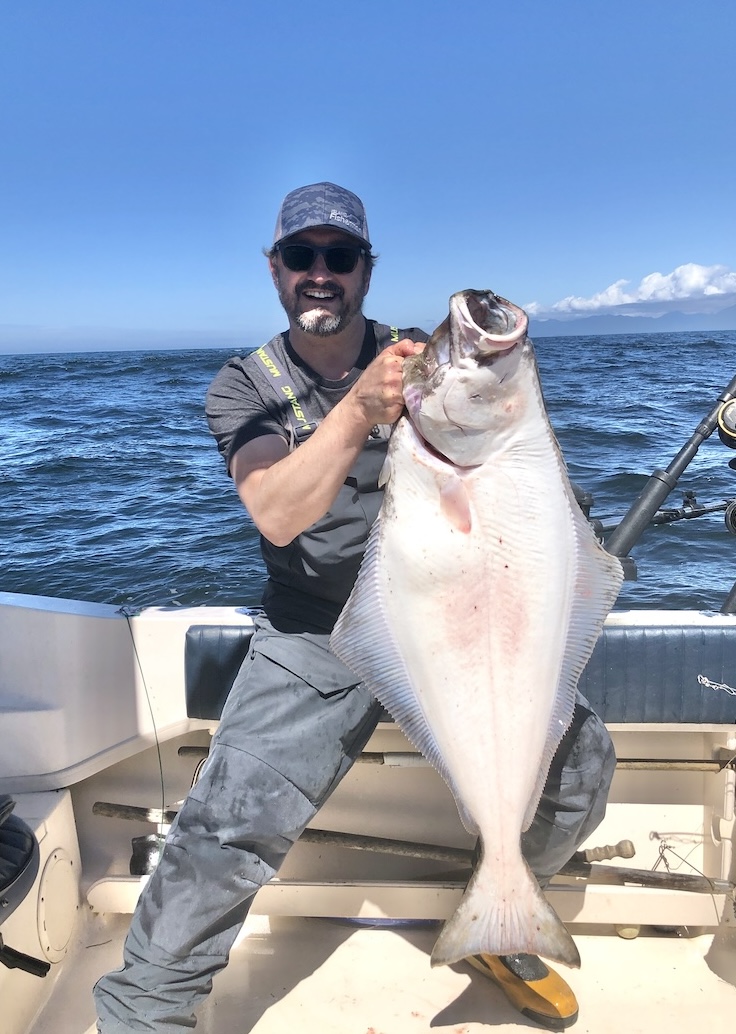
Joel Unickow halibut (Photo: Rob Frawley Lucky Strike Sportfishing Tofino)

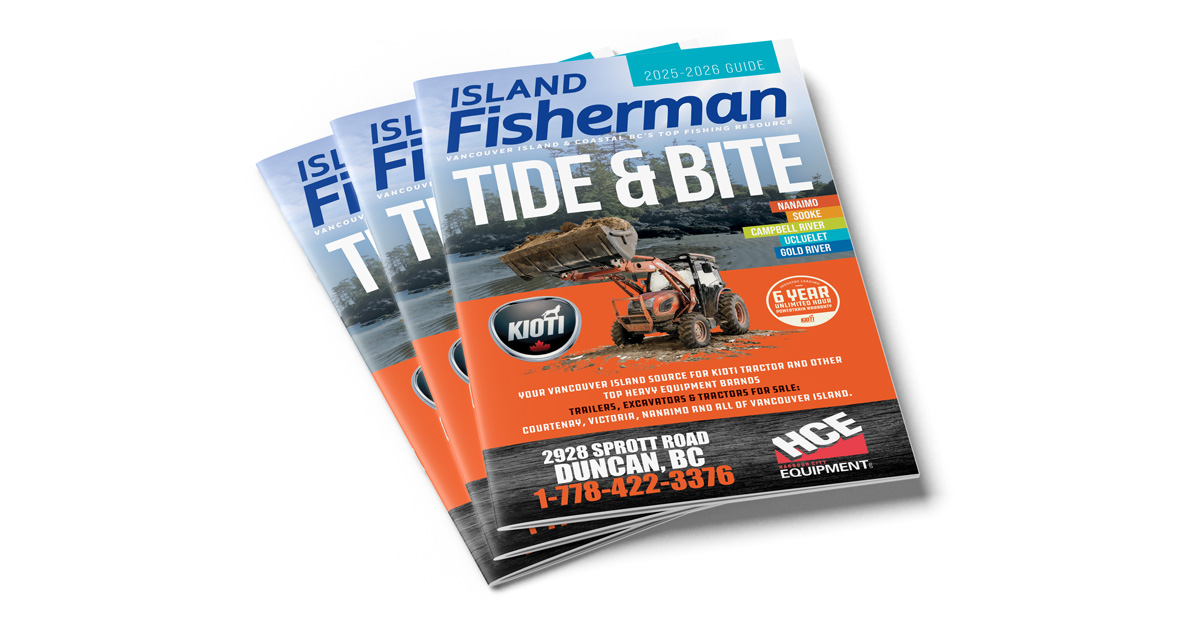
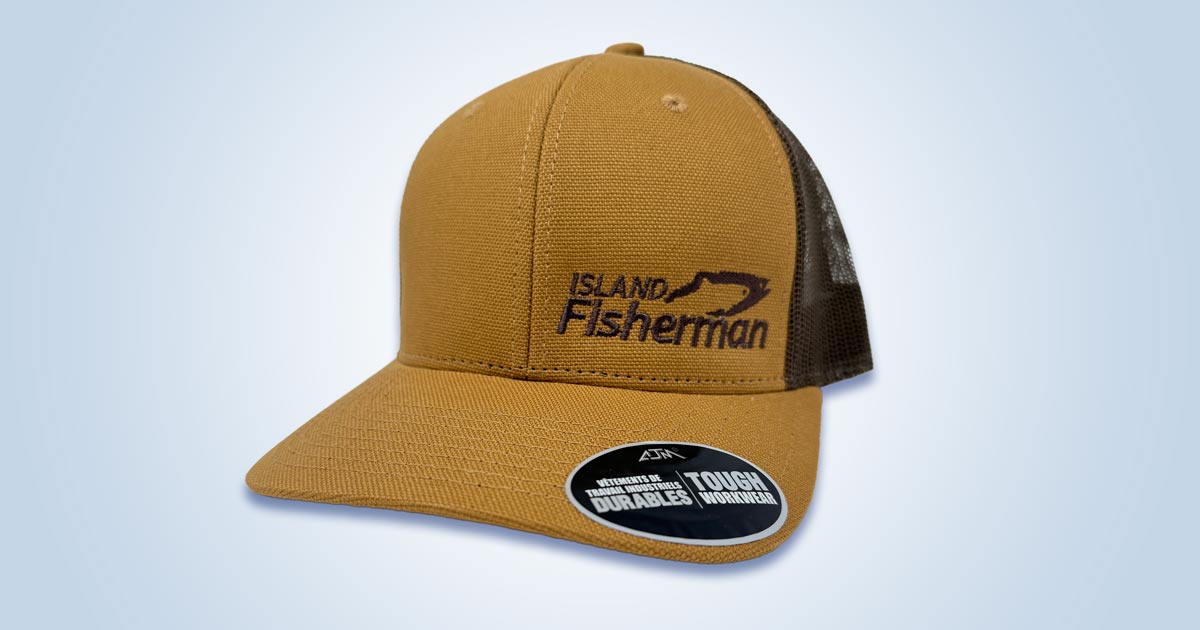

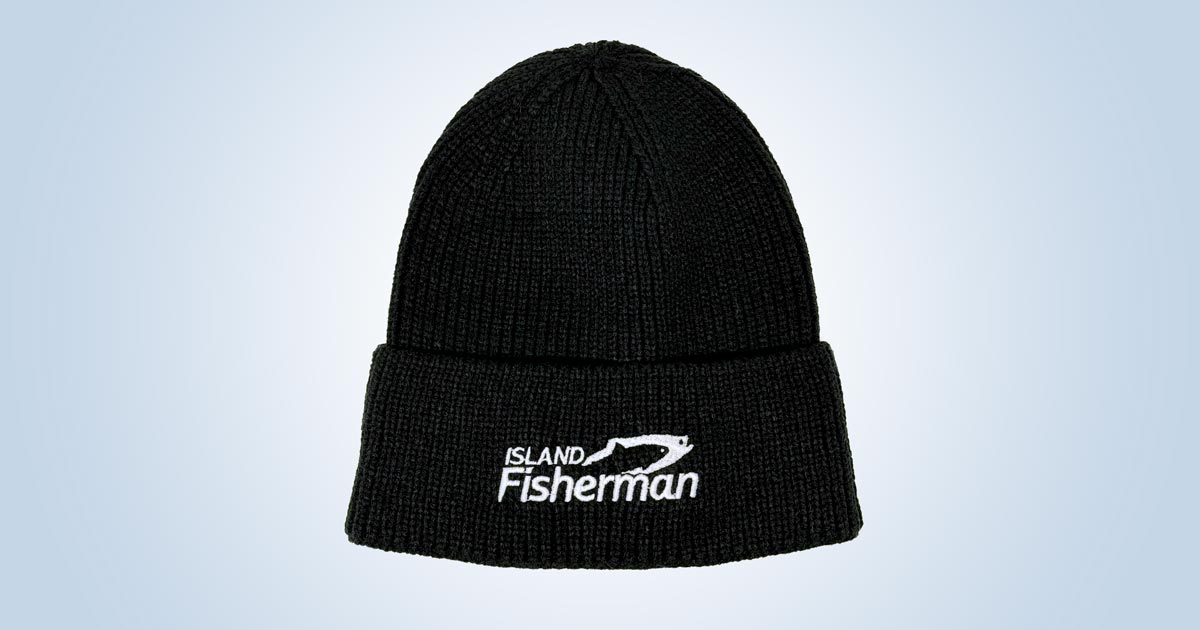
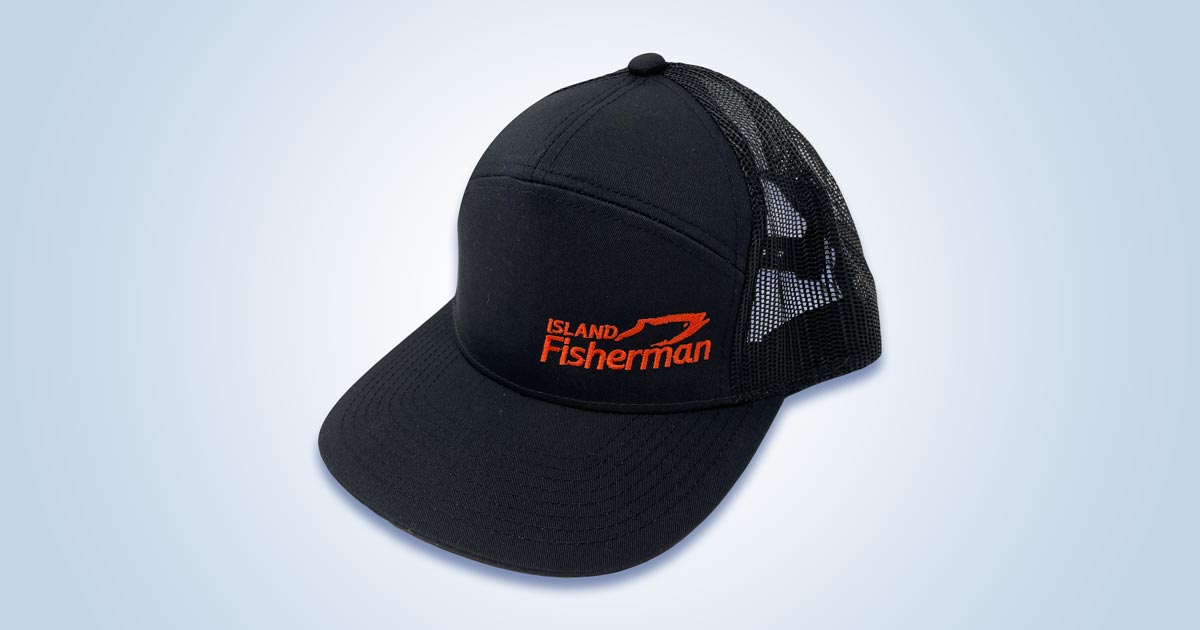
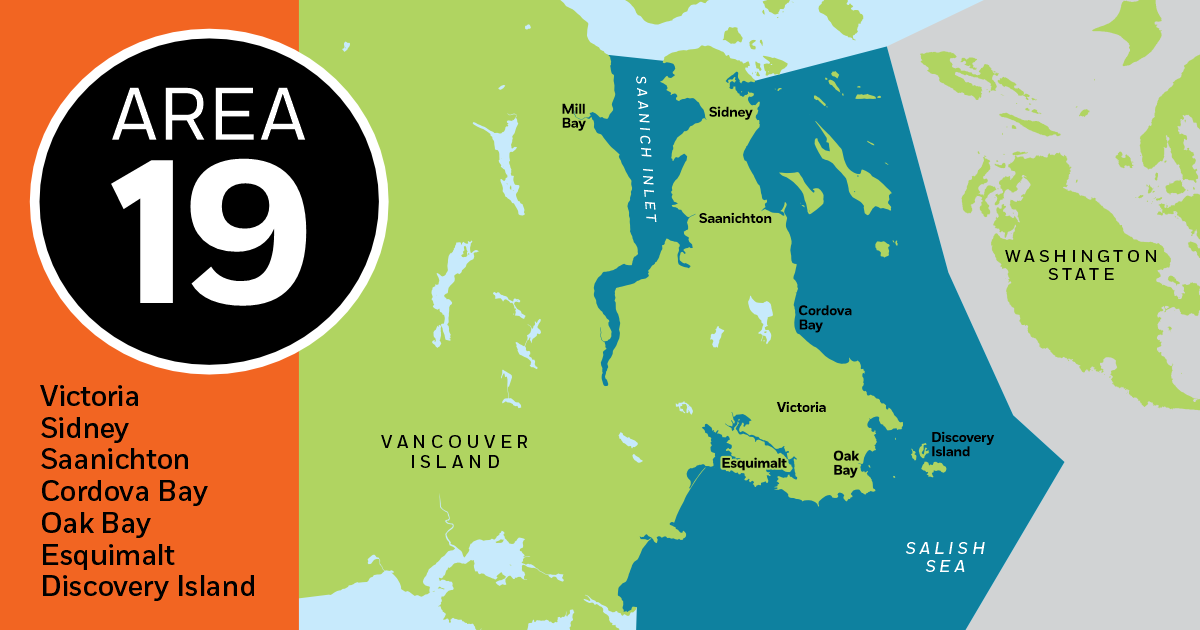
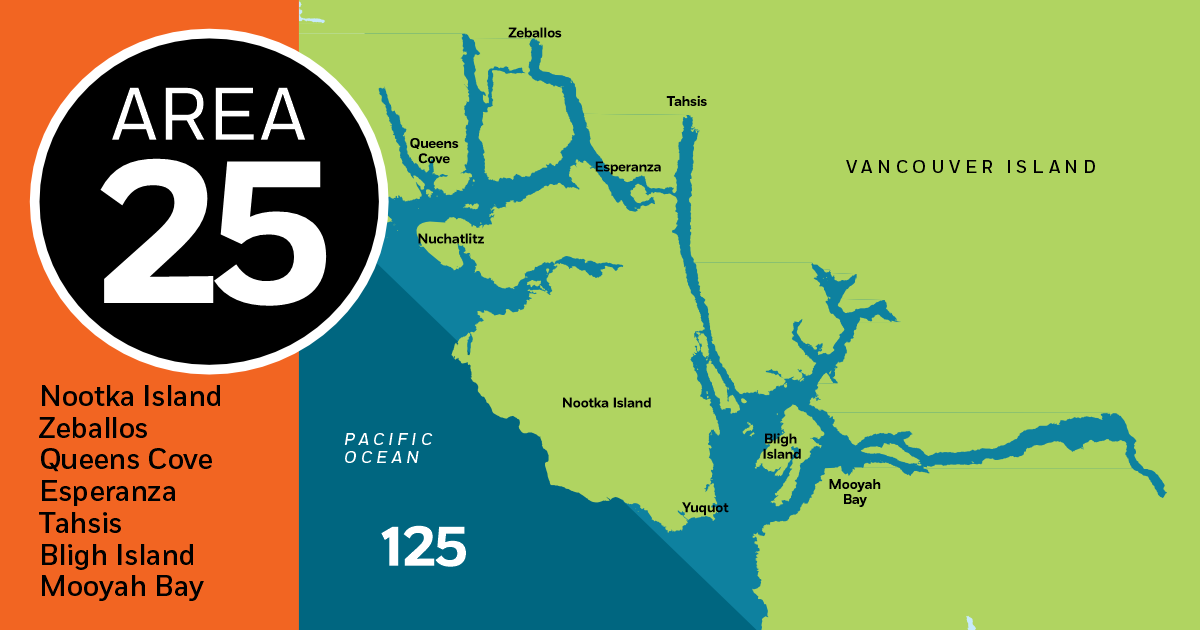
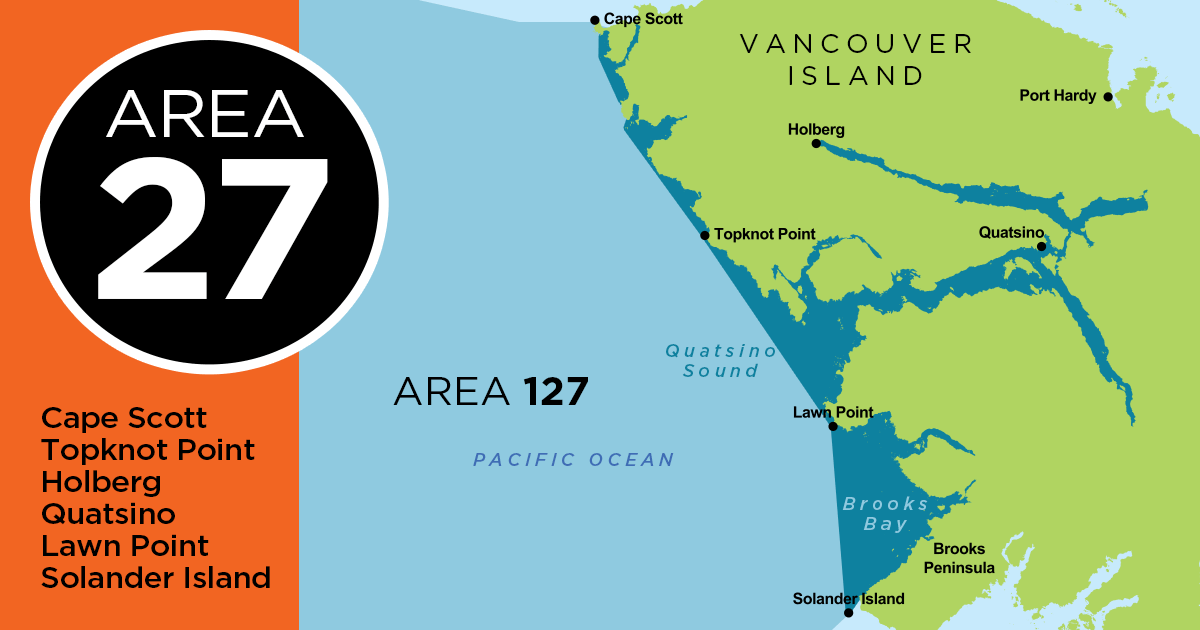
What has Federal Fisheries / DFO done to protect the few remaining Thompson / Chillcotin Steelhead??
Sports fishery retention of Thompson / Chillcotin Steelhead was stopped over 30 years ago yet they allowed gill netting of Chum during the time the Steelhead migrated through the Fraser –months of October-December– each year more steelhead were killed and now through mismanagement there are so few remaining it may be too late to save the once great runs.